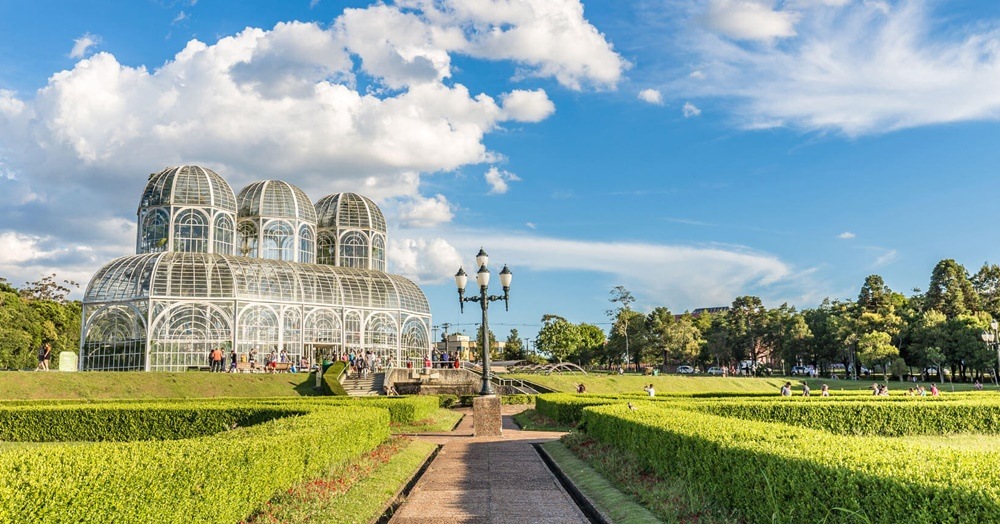RIO DE JANEIRO, BRAZIL – With the novel coronavirus pandemic under control in early May, Curitiba was in a comfortable situation compared to other capital cities that were suffering from the collapse of their health systems. So much so that, at the time, Mayor Rafael Greca declared on Twitter that the people from Curitiba were “following the Swedish model, recommended by the W.H.O”.

“We had no lockdown, trusting people’s intelligence”, in reference to the strategy adopted by Sweden to curb the disease. The ex-Minister of Health, Henrique Mandetta, went so far as to state that “if only everyone were Curitiba”, in reference to the city’s health system. At the start of the month, the city recorded just over 600 cases.
However, a new scenario shows that the strategy, a little more than a month later, has failed: over the past week, the city saw the number of daily records of the disease triple, after they had averaged 14 per day before reopening the city.
On Saturday alone, June 13th, there were 59 new records. In total, there are 1,177 confirmed cases of Covid-19 and 78 deaths. Paraná is now 22nd among the 27 Brazilian states in the ranking of deaths caused by the pandemic, so the numbers in Curitiba seem modest compared to the over 5,000 deaths in the São Paulo capital or the collapse of Manaus, but it was a trigger.
On Saturday afternoon, the municipal Secretary of Health, Márcia Huçulak, announced stricter measures for the circulation and operation of trade in the capital of Paraná, which entered into force on Monday.
Curitiba moves from the yellow alert level (moderate) to orange (medium risk), according to the Protocol on Health and Social Responsibility, a monitoring system adopted in the city to track the disease, and which establishes what measures should be taken at each level. The gyms, reopened by state decree on May 25th, closed again on Monday June 15th. The malls, which have also resumed their activities, will remain open, albeit with restrictions: stores may open from noon to 8 PM. The food court may remain open until 3 PM. After that, restaurants should operate exclusively by delivery.
Asked about keeping shopping malls open despite the orange level (which provides for closure), the Secretary said the city hall will “watch”. “We can issue another decree this week,” stressed the Secretary, who does not rule out the possibility of a lockdown in the near future if the situation worsens and the population does not cooperate with isolation.
The street trade and galleries open at 10 AM and close at 4 PM. Bars, parks, squares, churches and religious temples will remain closed indefinitely. All of this because the lifting of restrictions on trade and flow of people has already raised an expensive bill for the SUS, which now records a 74 percent occupancy of its ICU beds reserved for Covid-19, a percentage almost equal to that of beds intended for other diseases (73 percent).
Secretary Márcia Huçulak states that the restrictions are aimed at preventing the health system from collapsing, precisely due to the bed occupancy: one of the features of Covid-19 when there are complications, is that patients spend several days in hospital, sometimes weeks. The shortage of space to treat other illnesses is also a concern: “People get sick from other conditions”. Less isolation leads to more accidents and deaths from violence, which also overburdens the system, recalled the secretary.
Equipped to be a standard reference in the treatment of critical cases of Covid-19 through the SUS in Curitiba, the situation in the Hospital do Trabalhador (HT) is even more worrisome: in an internal report disclosed only to the institution’s staff, the ICU bed occupancy for the disease stands at 88 percent.
The city is also experiencing an increase in cases of death from Severe Acute Respiratory Syndrome (SARS) with unspecified cause. According to Lagom Data analysis for the newspaper Folha de S. Paulo with data from OpenDataSus, Curitiba records five deaths from respiratory causes for each Covid-19 death. “All SARS cases are tested, now more than ever. Therefore, there is no connection with underreporting for Covid”, assured the secretary.
“It’s not over, people”
According to Márcia Huçulak, the closure of venues that had been reopened (such as churches, gyms and religious temples) occurred because these were some of the places that experienced outbreaks of the disease in the city. “There is a misconception among the people, and we are stressing this. It’s not over, people. The virus is not going away. It will only go away with a vaccine or a proven treatment. Eventually, whoever had the disease and recovered is reassured, but so much remains to be learned about the disease. And many people don’t understand its severity”.
Situations like people refusing to wear masks in supermarkets, crowds in supermarkets and department stores, parties in residential condos and attacks on inspectors who controlled people boarding buses are some recurring scenes in Curitiba. “What part of this did people fail to understand? Responsibility must be collective,” said Marcia.
Regarding public transportation, there are many complaints from users, who recalled crowds and crowded buses over a live broadcast by the Secretary. On Friday, the city hall announced that buses in Curitiba will operate with a maximum occupancy of 50 percent. The Urbanization of Curitiba (URBS), which administers public transports in the city, determined that drivers will no longer stop at subway stations or bus stops on the streets whenever vehicles are at half capacity.
“We believe that time restrictions in trade will help. But we see students with no classes moving around, and other groups that don’t need to go out. We need society’s support. We urge people to please stay home as much as possible,” asked the Secretary.
Source: El País

